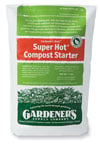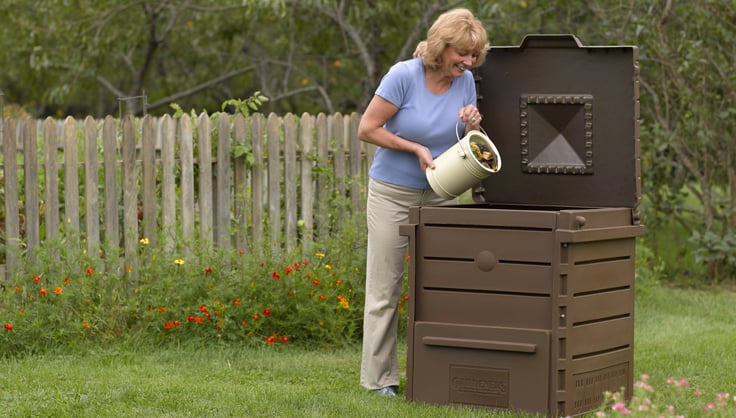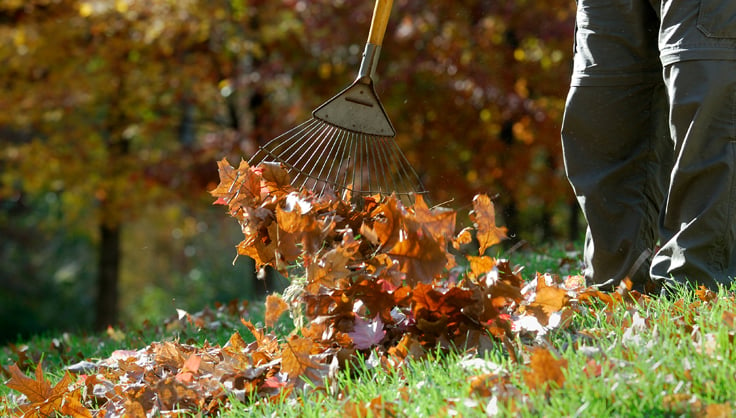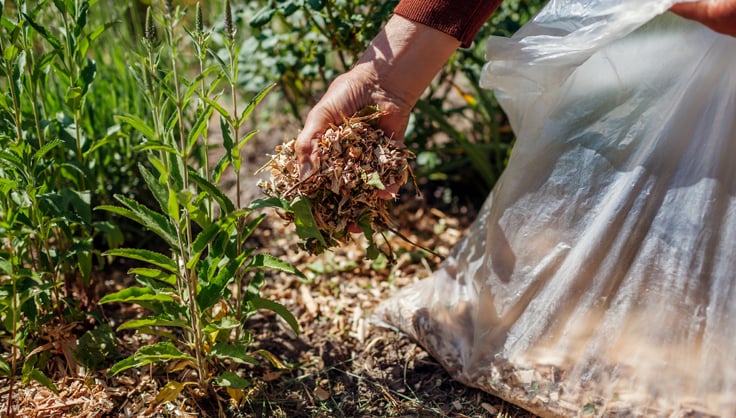Jumpstart Your Compost
The great thing about composting is that you can throw a bunch of leaf clippings, food scraps, and dried leaves into a pile and they will decompose into crumbly, nutrient-rich compost for your garden. Depending on the size of your compost pile, what you put in it, and how you tend to it, this process can take three months to two years.
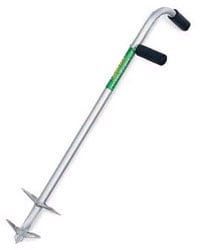 With a Compost Aerator, it's easier to add air to the pile. Aeration gives oxygen-hungry microbes what they need to break down materials faster.
With a Compost Aerator, it's easier to add air to the pile. Aeration gives oxygen-hungry microbes what they need to break down materials faster.If you want to get compost in a hurry, there are a few things you can do to speed the process along:
- Size it rightCompost piles that are about 1 cubic yard (3 ft square by 3 ft high) get hotter quicker. (Up to 140 degrees F!) Heat is a by-product of rapid microbial action and a sure sign that the microbes are working at top speed to break down the materials. Smaller piles and larger piles don't heat up as quickly.
- Turn it overMicrobes need oxygen to do their work. Turning the materials in your pile once a week will add the needed air. If you can't—or don't want to—turn the pile, try aerating it by poking around in the pile with a pitchfork.
- Keep the combo rightFor rapid decomposition, your compost pile should have a carbon to nitrogen ratio of about 20:1. Carbon-rich materials include corn stalks, straw, dry leaves, sawdust, and shredded paper. Nitrogen-rich materials include kitchen scraps, fresh prunings from your garden, alfalfa hay, grass clippings and seaweed. You can boost a compost pile with Super Hot, an organic activator make of nitrogen and hungry micro-organisms.
- Keep it moistWater is another key component in making compost, but you don't need too much. Your compost pile should be moist like a damp sponge, not soggy or waterlogged.
-
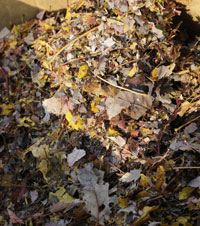 Shredded leaves, saved on a fall afternoon and shredded with a leaf shredder .
Shredded leaves, saved on a fall afternoon and shredded with a leaf shredder . - Shred itIt's no surprise that smaller materials break down faster. You can help your compost along by shredding fallen leaves with your lawnmower or leaf shredder and chopping up your kitchen scraps. Some avid gardeners even recommend putting kitchen scraps through the blender, which gives you the added benefit of moisture when adding the scraps to your compost pile.
Note: In years past, many experts have recommended adding manure—which is nitrogen-rich—to your compost bin to speed up the microbial activity. New strains of bacteria have caused concerns, however, and some people are backing away from that suggestion. Alfalfa meal and soybean meal are high-nitrogen alternatives and are available at many feed stores.
Last updated: 07/17/2023
Print this Article:
Related Articles
Get the Dirt
Stay up to date on new articles and advice. Please fill out the information below.

